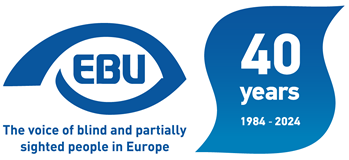
The present article has been developed in connection with the V.I.S.I.ON project, supported by the European Commission and the Bulgarian National Agency “Human resource development center”, through the Erasmus+ programme.
Up to now theatre theory as well as the theoreticians themselves have mainly been engaged in training actors, in transforming ideas into actions for the purpose of presenting them before an audience or in the influence that theatre has on society. In contrast with that, we aspire to implement a theatre which turns the concept of actor into participating person, focused (in our case) on creating confident v.i. young people, by having them stimulate their sensations to focus on their strengths and talents (rather than on their limitations) and by involving them actively agenda of activities.
Research, best practices and work with v.i. children have demonstrated that the best sources are ‘Applied Theatre' and ‘Theatre in Education', which aim to generate social and personal change. Confidence is fundamentally related to our ability to make decisions and to interact with others without apprehension. In addition, it is also related to curiosity, to being open to new opportunities and alternatives, and learning about the world. It is connected with the feeling of empowerment to express our ideas, thoughts and feelings. These are qualities, which motivate young people to become active participants in the process.
If we break down the confidence into its composite parts, we can list the following elements:
- Decision making
- Interaction
- Curiosity
- Open-mindedness
- Empowerment
- Expression – having a voice
- Communication
- Being heard and understood
Our task is to identify the theatre activities and exercises which could create the best conditions for the development of these qualities, never forgetting that each activity/exercise could lead to different results with different children. Considering that each participant is a unique case, it is crucial for us to be particularly patient and able to listen to and to provide encouragement to each individual.
The V.I.S.I.ON program, which we are about to undertake, is based on the understanding that the process of theatre work, especially when it is aimed at development of qualities, rather than training of actors, should go through 5 consecutive stages, regardless of the characteristics of the young people involved: (1) forming a group; (2) developing skills; (3) sharing ideas, playing and creating together; (4) presentation and; (5) evaluation and closure.
The program for theatrical techniques and exercises for development of skills and confidence for verbal and physical expression among young visually impaired people will be ready by mid 2016 and accessible to all who are interested.
In order to see the activities, the products developed and the results achieved so far, please, visit the project web-site – www.vision-erasmusplus.eu.
Visual Impairment is just another perspective to perceive the world.



